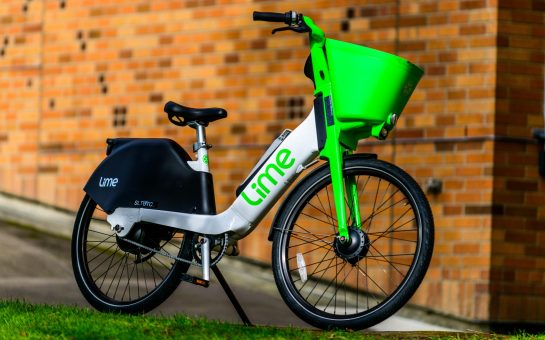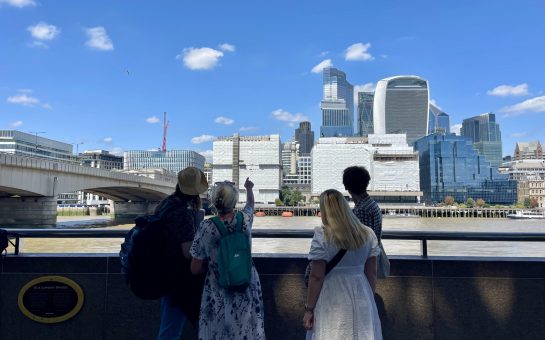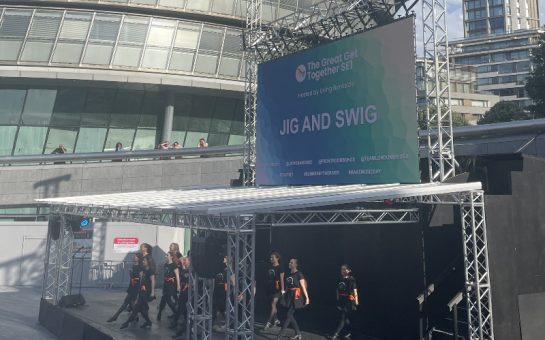By Freya Pickford
January 20 2020, 17.40
Follow @SW_Londoner
A host of London’s homelessness charities and organisations met in Old Street last week to discuss how they can work together to help tackle homelessness.
Founder of Streets Kitchen John Glackin and Museum of Homelessness founders Matt and Jess Turtle co-hosted the ‘Addressing homeless issues in North London’ meeting at the Vibast Community Centre.
Councillors from Haringey and Islington council were also among the 60 or so guests at the event.
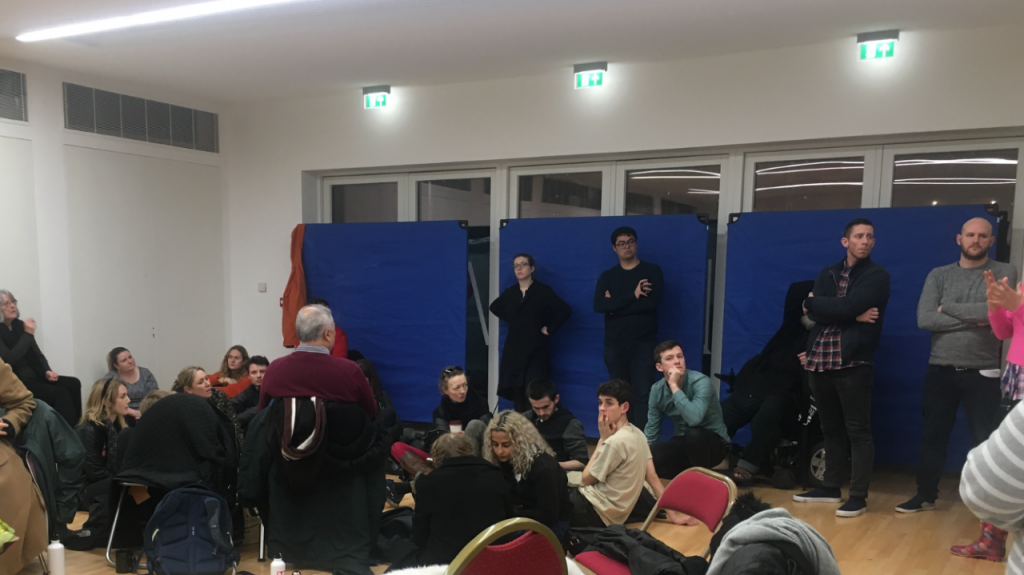
Mr Glackin spoke about the need for charities to work together in order to have a greater impact.
He said: “If just half of us came along next week to cook food and feed people outside we could make a big difference.”
Homelessness is one of London’s biggest social issues and according to Shelter there are approximately 167,853 homeless people living in the capital.
London has reported a 209% increase in levels of rough sleeping since 2010 and there was an 18% year-on-year rise between 2018-19.
Sadiq Khan has attributed the crisis to welfare reforms and a lack of investment in social housing which he said is a, ‘national disgrace.’
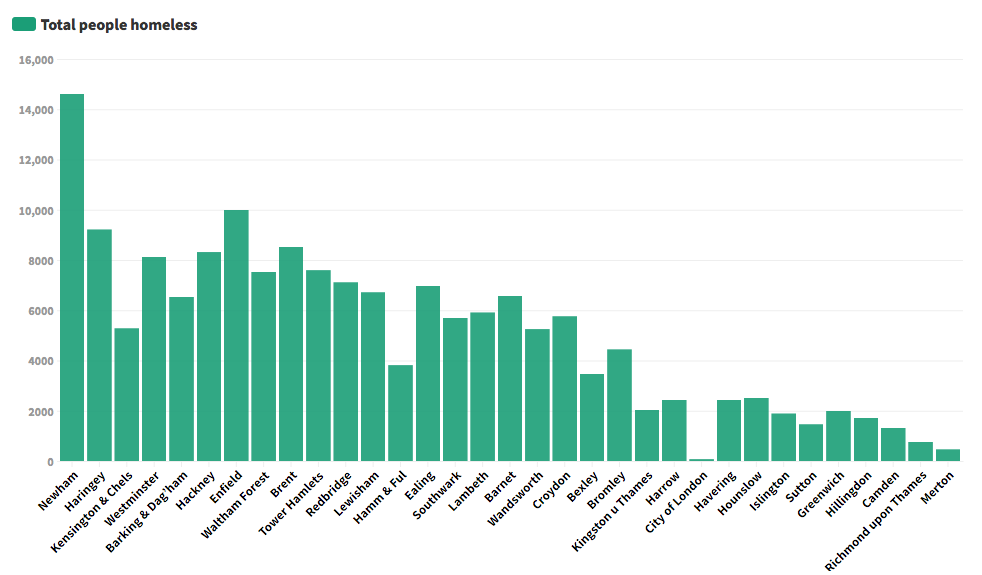
Attendees were asked to brainstorm ideas for how their organisations and charities can work together to help rough sleepers in the city.
A number of charities that provide meals to the homeless spoke of having insufficient food provisions and the need to share suppliers.
Guests also spoke about common issues they believe have exacerbated homelessness in London.
One attendee said: “I’m sick of the myth that you shouldn’t give people on the streets money. So many of the big charities feed into this narrative and it’s disgusting. It’s about treating people like people.”
The Tricky Period, a charity that provides sanitary products to homeless women and transgender men, spoke of the sad reality of period poverty in the UK and how it affects so many people.
The Tricky Period London founder Caroline Allouf said: “I speak to people on a regular basis who have to literally chose between a sandwich and sanitary products.
“Beyond that, it’s humiliation because they’ve leaked through their clothes. There’s a clear need for this and that’s the reason we’ve set it up.
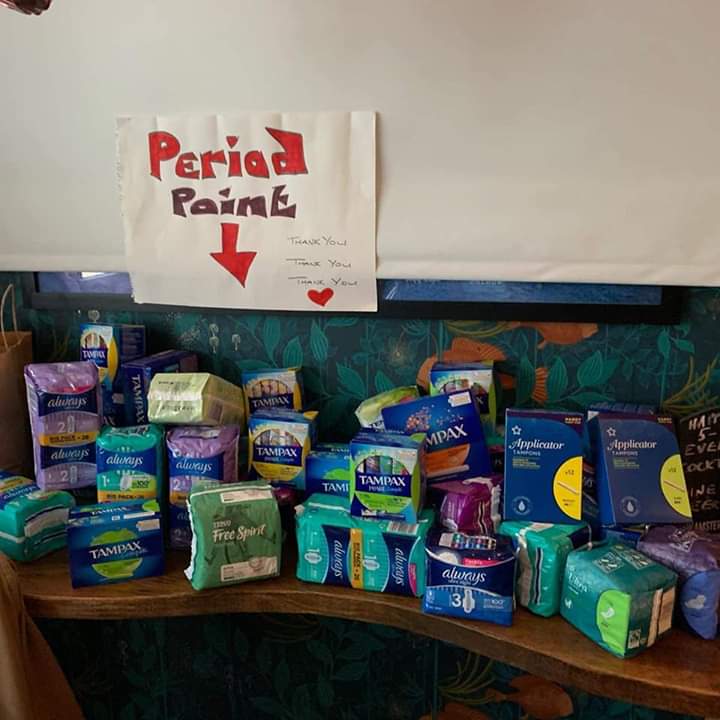
“We’ve linked up with local authorities like libraries. We distribute the products we’ve collected through donations to the libraries.
“All people have to do is go in and tick a box on a sheet to say what they need and the librarian goes to collect the supplies from the box. It’s all done very discretely so there’s no humiliation.
“But we now need to get more people involved and we need more drivers and resources.
“I’m in talks with supermarkets about them putting donation boxes out at the front of store. It will only benefit them because people will buy more from their store.
“The voluntary sector has become quite competitive and it can be difficult to secure those resources. It’s meeting like this which can really make a difference and help people living on the streets.”
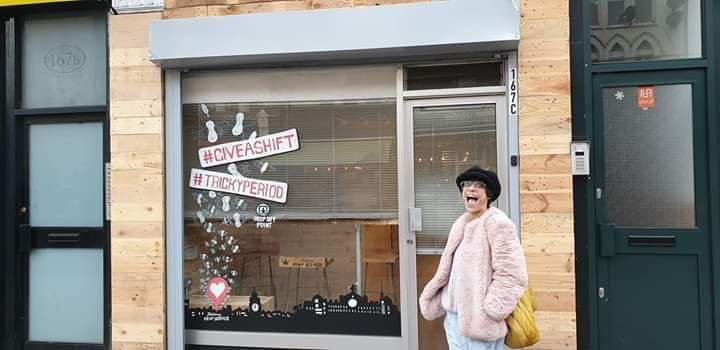
At the moment The Tricky Period is primarily operates in Islington and other areas of north London but they hope to expand.
The meeting’s host, and co-founder of the Museum of Homelessness Matt Turtle, explained that he and his wife Jess decided to set up the museum in 2015 when they realised nothing like that had been done before.
He said: “We were responding to the rise in homeless people and the fact there was no museum and it is a very present and important issue.
“We’re now a hybrid organisation, a campaigning group and a museum. We have a temporary base in Clerkenwell fire station.
“I think the reason there’s been such an increase in the number of homeless people in London is down to a mixture of obvious and subtle reasons.
“There’s a shortage in social housing and a shortage of affordable housing. It’s also difficult for people to move out of hostels and temp housing. Also changes to welfare in the last 10 years have made things worse.
“But there less known reasons. The local authorities have the right to refer people into privately rented accommodation, which many people are being forced into.
“There’s also been a huge rise in fines for people who are sleeping rough, for example public space protection orders which has effectively made it illegal to be homeless.”
Public Space Protection Orders were introduced in 2014 and allow councils to ban any activity they believe has a ‘detrimental effect on the quality of life of those in the locality.’
“This means they have the power to hand-out £100 on-the-spot fines, trips to court or £1,000 penalties if you don’t pay the initial charge.”
Mr Turtle also referenced a report created by the Bureau of Investigative Journalism last year which found 94% of rented homes are too expensive for families on housing benefit.
Museum of Homeless co-founder Jessica Turtle wrapped up the event.
She said: “These are really, really dark times. So to have all of you come along is amazing.”
Pictures courtesy of Caroline Allouf and Jon Glackin
